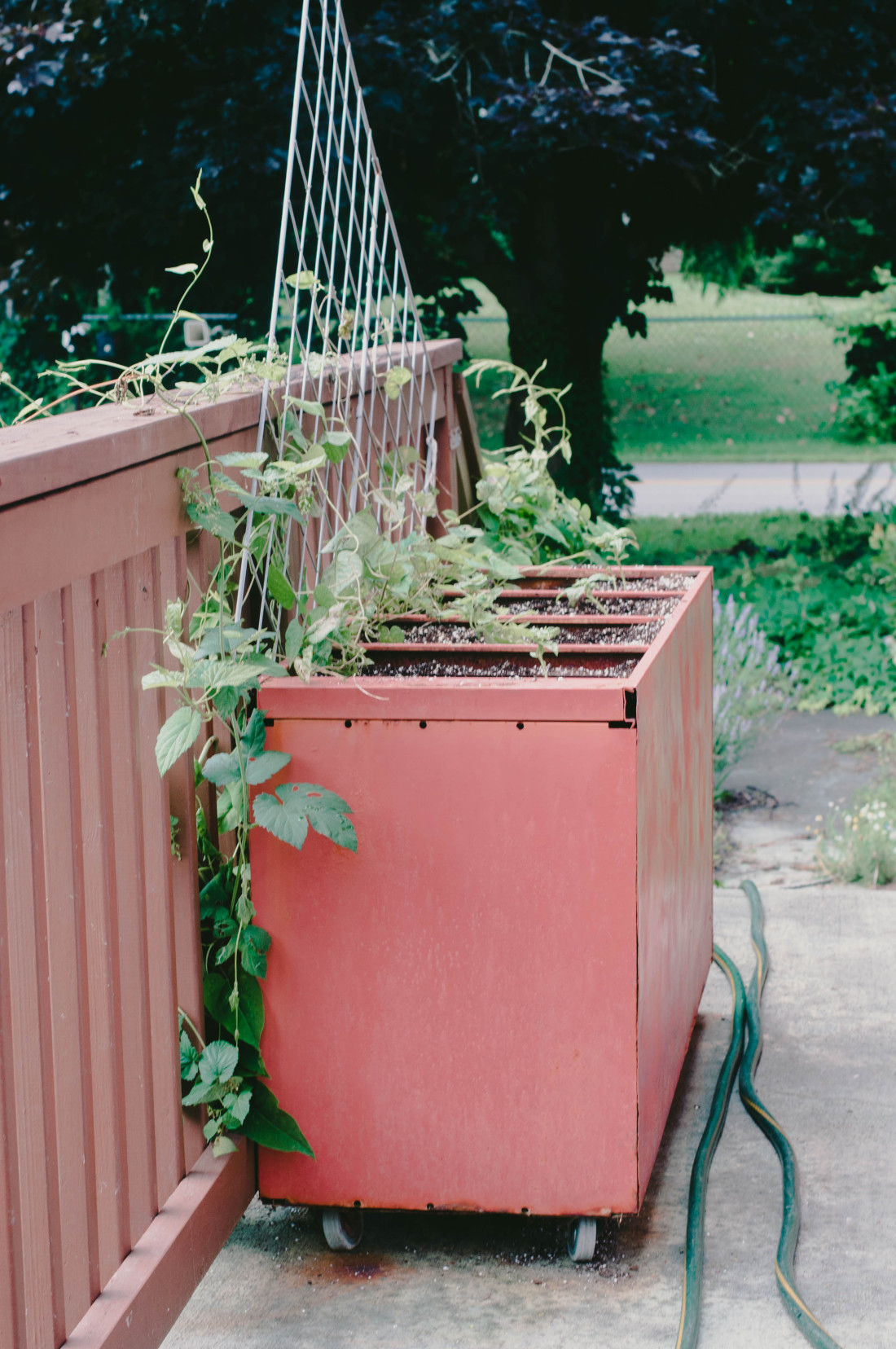Now that a reluctant spring has fully given way to the heat of another Western North Carolina summer, many residents are gleefully gleaning the rewards of gardening. Those lacking space or sun exposure for a traditional garden, however, may be feeling a bit more blue than green.
Whatever the challenge, opportunities abound with container gardening. Whether using pots or DIY upcycled vessels, this approach offers creative options for growing vegetables, herbs and flowers — proving gardens don’t have to be sprawling to be enjoyed.
“Maintenance is a lot less and easier than a big, traditional garden,” says Jessie Parham of Fifth Season Gardening. With pots and other growing containers readily available for purchase or easily constructed from repurposed materials, this style of gardening can also be very affordable, he says. In fact, according to the North Carolina Cooperative Extension, almost anything can serve as an upcycled container as long as it has drainage holes. This could include everything from old filing cabinets and wooden dressers to galvanized metal buckets.
And it’s not too late in the season to get started. In fact, explains Fifth Season co-owner Kristin Weeks, “This year’s late spring seems to have resulted in an extended period for growing.”
“Gardening can be done all the time, especially the planning,” says Megan Riley, owner of MR Gardens. “And that’s the most important part when you’re working with nature.” A naturalized-landscape proponent and sustainable-gardening teacher, Riley says now is the time to prepare growing spaces and plan fall container crops that can be planted in August, such as leafy greens, beets, carrots, parsley, fennel and more.
Weeks says folks are often surprised at the array of plants they can grow in containers. Heat-tolerant lettuces, tomatoes and corn are standards. More surprisingly, “blueberries, raspberries … even small citrus trees,” says Weeks, are available as container varieties that can turn an empty patio into a grazing spot.
Weeks points out that some decorative perennials such as hostas thrive in shady areas, but herbs, fruits and vegetables need some sun. To maximize solar exposure, consider adding rolling casters on the bottom of the container or buying wheeled trays, which allow pots to easily be moved to follow the sun, she advises. Riley recommends using trays in general, whether wheeled or not, to serve as water reservoirs that will safeguard the soil against drying out in summer heat.
The summer lull also affords an opportunity to learn about your soil choices, which include digging your own or purchasing. Riley recommends buying bagged organic soil, which has a generalized mix of nutrients suitable for most plants. Amendments such as nitrogen, potassium and phosphorus — also available at local garden stores — may be needed if using soil that is depleted.
Emphasizing the importance of microbe-rich soil, Riley recommends adding organic compost or biochar to container gardens. For the latter, a log is burned and the charred pieces are added to the soil mixture. The result is improved soil packed with microbes, mimicking the healthy soil found in a long-established garden.




Oh my god even one of the oldest ways to feed yourself still needs hipster labels like
DIY and upcycling? I’ll forgive that.
2 words to look up:
Permaculture- an old idea with an early ’70’s hippie back to the earth name
Victory gardens- when civilian food production was diverted to feed British and ‘Muricans
during a useless WWI, we learned to grow more food on less square footage at home.
Using funky and novel methods too.
I’m surprised no cable cooking channel has created a gardening show for folks who want fresh food but live in a tiny apartment.
PS
-upcycling is hipster to English for
cheapskating/thrifting (over 35 vocab)
-DIY is punk vocab for ‘so what if it sounds bad let’s
record it ourselves’.
And good news gardeners! With ‘Murica’s stubborn un- wavering addiction to
fossil fuels and the resulting human-caused climate change,
soon you too will be able to grow foods in WNC previously only available from
much warmer bioclimes! Aren’t we excited?
Pineapples and mangoes for all!